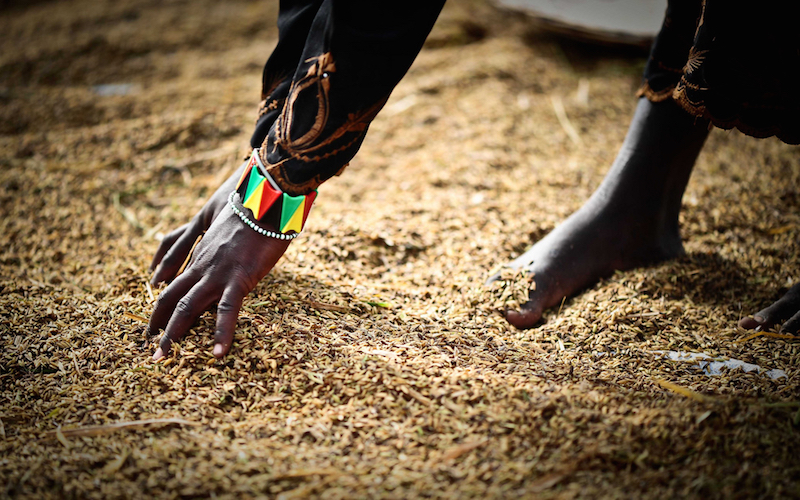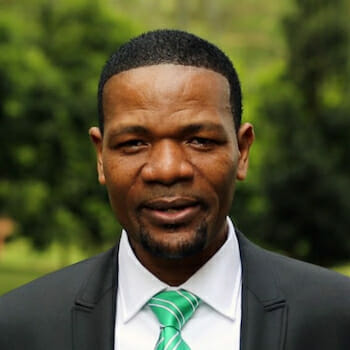
Winning Africa’s Future: Food Security for All
In a little less than 7 days, more than 1400 participants will gather in Nairobi on 30-31 July 2015 to discuss how Africa can win its future under the theme “Re-imagining Africa’s Food Security Now and into the Future under a Changing Climate.” Because the discussion occurs just before two big global conferences slated for 2015, it could set the pace for how Africa can catalyze a just future for all. A future where there will be food and shelter for all- where images like those from the Mediterranean Sea showing Africa’s youth risking and often losing their lives in an attempt to flee the continent will be no more.
In September, New York will host the meeting on the new Sustainable Development Goals. Climate change will be the focus of the December conference in Paris. Taken together, these two conferences represent a once-in-a-generation opportunity for Africa’s development. As the African saying goes: “When the music changes, so does the dance.” To put all countries firmly on the path to a secured food system as well as inclusive growth, there needs to be a change in the music. A new approach is therefore urgently needed to build an inclusive food system that is robust enough to create jobs and wealth for all in Africa, including the youth.
The Years in Retrospect
Sometimes looking backwards serves to provide the impetus needed to leap forward. Africa has registered impressive milestones in its thousand mile journey towards sustainable inclusive growth. The 1990s marked the release of Nelson Mandela from prison, a continental icon who demonstrated the power of dogged perseverance to one’s course. Today’s course for each and every one of us is that of charting a sustainable food secured pathway where productivity, job creation and collective wellbeing for all are the norm and not the exception.
The 2000s marked the beginning of Africa’s decade of growth- averaging 5.1% beginning in the year 2000, and doubling the average growth rate of the ’90s. This spilled over to post 2010, with estimates pegging Africa’s GDP growth at approximately 6% annually, with 6 of the world’s 10 fastest growing economies being African, and a growing middle class with 20% of the population having daily incomes of over USD 10 as of 2012.
These improvements may well be from a very low base. However, the trajectory of Africa’s transformations is undeniable. The question that will be on the mind of every participant at this year’s 2nd Africa Ecosystem based Adaptation for Food Security (EBAFOSC 2) is how best to achieve Africa’s Food Security Future that is inclusive and works for all.
How do we create enough well-paying jobs for a billion people in less than 25 years when already about 60% of our youth are unemployed? How do we harness EBA- driven agriculture to stimulate job creation, growth, and value additional partnership in Africa? How do we catalyze investments and policy support for EBA-driven agriculture as well as incentivize private sector involvement in EBA-driven agriculture to bring in capital and enhance competitiveness? These are just some of the questions EBAFOSC2 conference will be discussing. Although registration for the conference has now closed, the proceedings can be followed on Twitter at #EBAFOSC.
Africa Food Security Policy Framework
The 2003 Maputo Declaration, marked the continent’s intentions to modernize agriculture resulting in the establishment of the Comprehensive Africa Agriculture Development Programme (CAADP). The most prominent decision of this declaration was the commitment by AU member states to allocate at least 10% of national budgetary resources to agriculture and rural development, a policy implementable within five years.
A decade into this declaration, 13 countries had met or surpassed the 10% target and average continental agriculture spending increased by over 7% annually in the period. In marking this decade, the AU launched “the year of agriculture and food security” in 2014, whose climax was the adoption of the Malabo Declaration by AU Heads of State and Government. The Malabo Declaration on Accelerated Agricultural Growth and Transformation for Shared Prosperity and Improved Livelihoods is a commitment by the AU Heads of State and governments to end hunger by 2025 and reduce post-harvest losses by 50%. To operationalize the Malabo Declaration, the AUC and NEPAD launched the implementation strategy and road map to achieve the 2025 vision on CAADP. EBA-driven agriculture is recognized as among priority mechanisms for delivering the 2025 Vision on CAADP, a remarkable milestone for EBA. However, this reported growth and declarations of good intent are amidst a plethora of challenges.
Turning Africa’s Challenges into Opportunities
About 240 million people in the continent go to bed hungry; over 200 million suffer the debilitating symptoms of chronic to severe malnutrition, which also contributes to over 50% of infant mortality on the continent. The region currently spends more than USD 35 billion annually on food imports while recorded annual productivity losses amount to USD 48 billion as postharvest losses, and a further 6.6 million tonnes as potential grain yields are lost due to degraded ecosystems: food enough to meet the annual calorific needs of approximately 30 million people. Exacerbating these challenges is rapid population growth projected to hit 1.5 billion by 2030 and 2.4 billion by 2050, youth unemployment currently at 60% with an additional estimated 350 million young people entering the labor market by 2035, and climate change expected to hit the crucial agriculture sector with 11 – 40% yield reductions on key staples.
While these grim statistics are a resounding call to action, the continent’s inherent agriculture potential is a source of solace…
Africa’s Abounding Solutions
Africa holds up to 65% of the world’s arable land and 10% of internal renewable fresh water sources. On incomes and poverty reduction, the World Bank reports that in Africa, a 10% increase in crop yields translates to approximately a 7% reduction in poverty. Neither the manufacturing nor service sectors can achieve an equivalent impact. Nevertheless, current sector productivity is low, contributing a lowly 25 – 34% of continental GDP. However, the agriculture sector which currently employs up to 60% of the continent’s labour can potentially ensure inclusive and sustainable growth if its value chain is optimized holistically, and productivity losses stemmed. It can create jobs for many of the 17 million youth entering the job market annually while feeding Africa. A climate proof agriculture sector based on EBA techniques that work with nature and augment farm productivity with value addition strategies to unlock income opportunities along the entire agro-value chain will potentially result in yield increases of 116 – 128% and accompanying farmer income increases, and be two to four times more effective in reducing poverty relative to other sectors.
A Call to Action
The (EBAFOSC 2), –builds on the findings of the continental task force report “Towards a Comprehensive Strategic Framework to Upscale and Out-scale EBA-driven Agriculture in Africa.” Based on the taskforce findings, EBA driven agriculture augmented with value addition along the agro-value chain can potentially ensure not only food security, but livelihood security, enhance community climate resilience hence climate adaptation, enhance ecosystem productivity and unleash numerous income and job opportunities along the value chain by linking supply and demand side value chains.
Given the central role agriculture plays in socio-economic development in Africa, this conference presents a golden opportunity to put the continent’s food systems on track, now and well into posterity, and thereby guarantee sustainable and inclusive growth going forward.
Jointly discussing Africa’s challenges and solutions will propel Africa into the shining city on a hill, where collective prosperity for all will no longer be an elusive dream. As the African saying goes, “If you want to go fast, go alone, if you want to go far, go together.” Let’s go together to catalyze a food secured Africa and guarantee sustainable and inclusive growth for the collective benefit of all.

